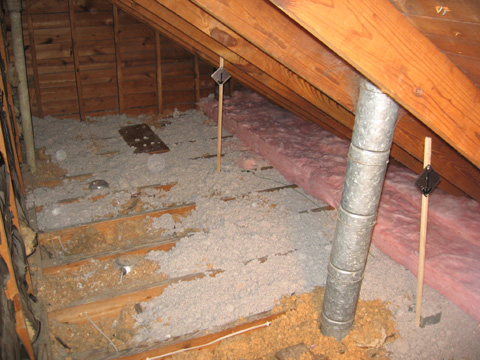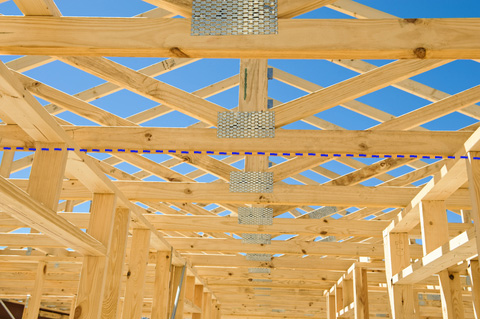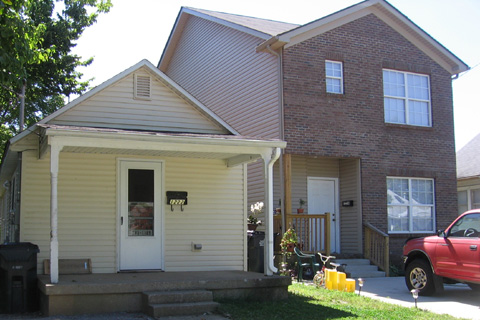

How your ceiling is framed will vary. If your ceiling also provides the floor joists for a second story it will be made of dimensional 2X stock or possibly framed with engineered joists, baby I-beams built of wood and OSB. These two items are completely interchangeable in modern construction.
Whichever is used they are most likely 16" OC and securely attached to the framing members below. The floor is attached to the joists and then the walls for the second story are framed in the same manner as the ones for the first level.
If on the other hand you have no second story your ceiling may be attached to the bottom of trusses which also support the roof and roof sheathing. It is quite common for trusses to be installed 24" OC. A quick trip to your attic can help you determine exactly how yours is constructed. The photo below shows a stick framed, a term for conventionally framed using dimensional lumber, ceiling and roof system.

This second photo shows a fairly shallow attic being framed with trusses. The blue line represents the approximate ceiling level where the drywall will be attached. Note that it would be impossible to walk around and difficult to even crawl in this attic.

The extensive use of modern styled buildings using angles of varied roof-lines in the last twenty years also makes it possible to find ceiling/ roof structures that are a combination of trusses and stick framing. Many of those wild roof-lines are created with a series of step-down trusses or trusses butted into trusses, but some of those are created by combining the two styles; using trusses to a point and adding stick framing for a small section of the roof. The house on the right in the photo below was built with trusses which ran from the front to the back. Then for improved appearance a stick framed gable roof was added to the front and connected to the trusses with jack rafters.

Most of this means very little to you as you do most remodeling project. As long as you do nothing that weakens the structural integrity of your home your projects will move forward without a hitch or glitch. Removing any home element that is load bearing is where you need to be cautious. The knowledge to know what is and is not load bearing requires careful investigation and may not be something you can learn from reading this article, another dozen articles or even several books on the subject.
If at any time you have doubts, the few hundred dollars you may pay a structural engineer for a field investigation is very cheap insurance as great care needs to be taken when working on, modifying or removing a load bearing wall or other element.
This was years ago and I imagine the price is more now than it was then, I once paid a structural engineer $75 for an office consult with drawings and photos, to tell me that I was absolutely correct; the beam I had designed was more than adequate to carry the load involved. I did not want to run the bill up so I did not ask him to define more than adequate. Over cautious; maybe, but I sleep good at night, don't worry about lawsuits, and the occasional popping and cracking sounds one hears during the night in a quite house don't disturb me. $75 well spent in my mind.
Don't be a cheap butt. Get professional advice when you have any doubts.